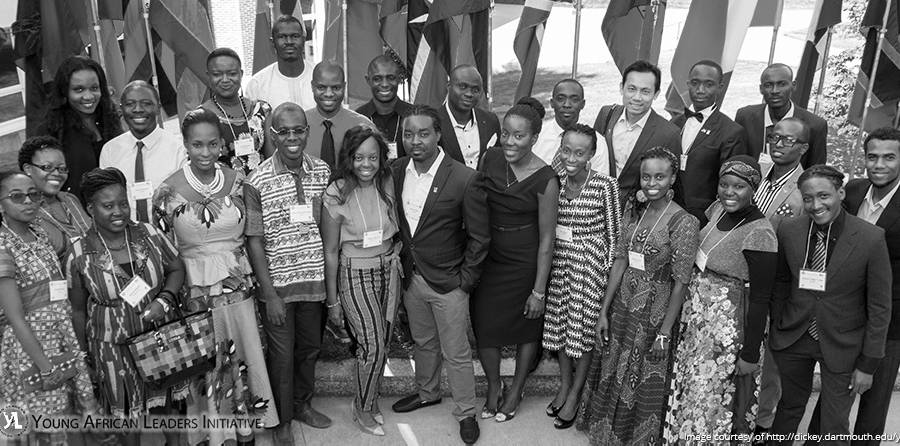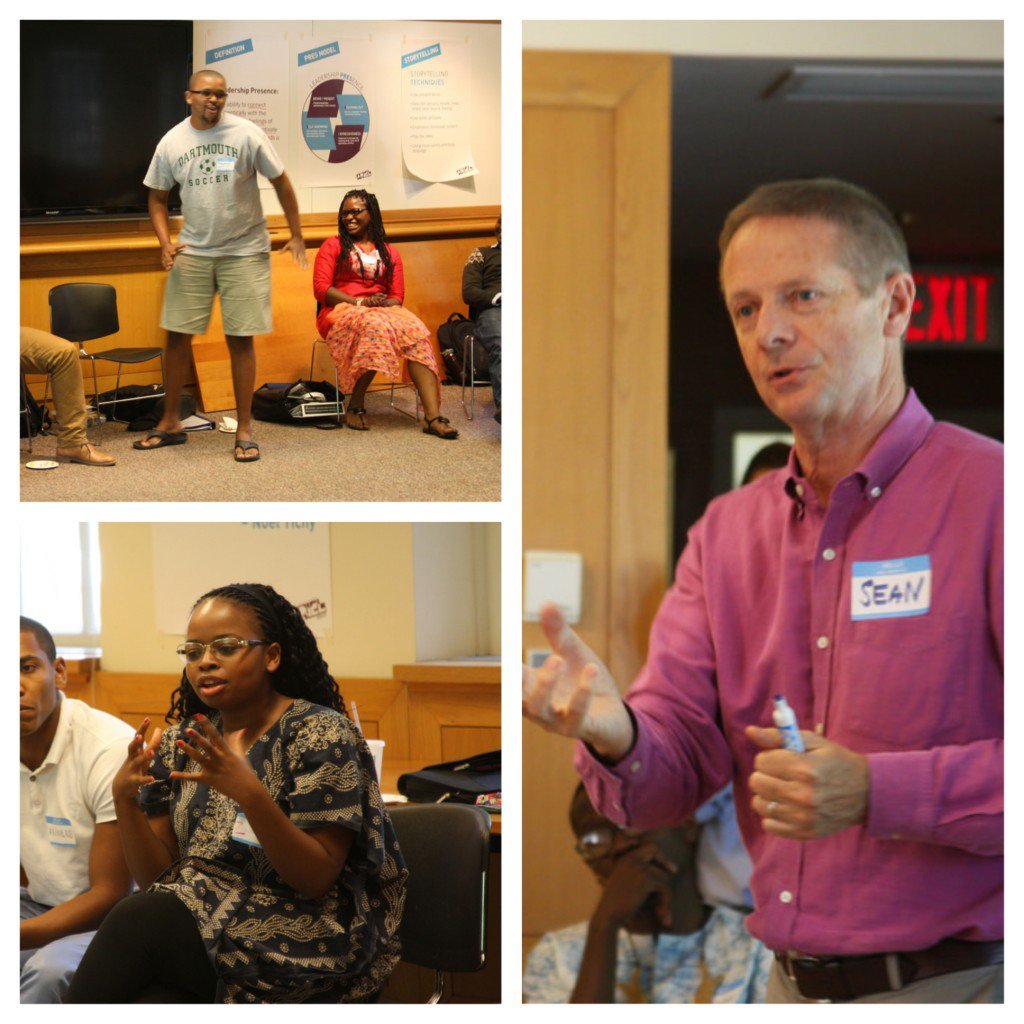Storytelling and the Young African Leadership Initiative

I was humbled and invigorated by the experience, especially the incredibly moving stories. I learned that storytelling is common to all cultures, regardless of context, and is a powerful tool for inspiring others through mutual understanding and connection.
It’s truly amazing how storytelling can bridge the gap between nations, continents and cultures. On a recent Thursday in June I drove up to Dartmouth College in Hanover, New Hampshire to facilitate a three-hour storytelling workshop for a group of 25 young African entrepreneurs. We were invited by the Nelson A. Rockefeller Center for Public Policy as part of The Young African Leaders Initiative (YALI). Started by President Obama in 2010, YALI is a long-term effort to invest in the next generation of African leaders and strengthen partnerships between the United States and Africa.
I was excited and nervous to be part of this ambitious effort. On the drive up in the morning I heard a news story on NPR about the program; 500 young Africans are currently in the US studying leadership and governance in a variety of locations. I heard some of them interviewed during a tour of historic sites in Virginia.
To be honest, I wasn’t sure what to expect. I’d seen my group’s very impressive resumes, and knew they were an interesting and diverse collection of entrepreneurs, non-profit leaders and corporate managers. They represented the fashion industry, tourism, consulting and non-profit causes in support of women’s and children’s issues, to name a few. I’d also been told that the group would have only just arrived in the states, might not have a complete command of English and would represent a range of cultures and countries, some of which had had strained relations in the past. They hailed from all over Africa: Zambia, Uganda, Cape Verde, Liberia, South Africa, Ghana, Angola, Namibia, Gambia, Kenya and more. I remained optimistic, but secretly wondered if their differences would make the group somewhat tentative.
 They were nothing of the sort. This was a dynamic group of creative and ambitious 30-somethings who represented not just an exciting new generation of leaders, but a new hope for the African continent. They had no reluctance at all about jumping into the exercises, and their expressiveness was off the charts! It was clear that storytelling was part of their tradition, and it was exciting to harness this historical skill in service of leadership education.
They were nothing of the sort. This was a dynamic group of creative and ambitious 30-somethings who represented not just an exciting new generation of leaders, but a new hope for the African continent. They had no reluctance at all about jumping into the exercises, and their expressiveness was off the charts! It was clear that storytelling was part of their tradition, and it was exciting to harness this historical skill in service of leadership education.
The stories were wonderful. Patrice, the owner of a Liberian fashion business in who wanted to build a traditional-design textiles company, told of losing her father in the Liberian Civil War and her mother’s strength and courage in raising the family alone. The entire room jumped to its feet in applause at the end of this amazing, spirited and confident story.
Komu, a young man struggling with both a physical disability and a speech impediment, transcended both in his powerful and amusing story about waking up one day in the hospital, in great pain and with his worried mother by his side. His self-deprecating humor charmed us all. Komu is driving an initiative to assist the disabled with greater access to the work environment.
Mshila, the executive director of a Kenyan water-treatment company, told of enduring vicious corporal punishment at school and the strength and resilience he developed in spite of this.
I learned much more from this group than I could teach them. They were the embodiment of authenticity and expressiveness, formed in cultures so different from our own and from which we have so much to learn. I was humbled and invigorated by the experience, especially the incredibly moving stories. I learned that storytelling is common to all cultures, regardless of context, and is a powerful tool for inspiring others through mutual understanding and connection.
